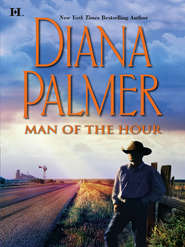По всем вопросам обращайтесь на: info@litportal.ru
(©) 2003-2024.
✖
Unbridled
Настройки чтения
Размер шрифта
Высота строк
Поля
She was examining his eyelids, neck and jaw, as she listened. “Rigor’s just now setting in. I can’t give you an exact time, you know that. But rigor usually presents two to six hours after death, first in the areas I’m checking.” She looked up at them with pursed lips. “As many autopsies as you Texas Rangers have attended, Ruiz, I expect you already knew that.”
John gave her a Latin shrug and a smile.
“An approximate time of death will help us retrace his steps,” the officer interjected.
“Double tap,” she noted after inspecting the wounds, both of which had penetrated the boy’s heart. “Execution?” she asked, looking up at the men.
“That would be my call,” John replied. “He made someone very angry, apparently. Note the tats as well.”
“Los Serpientes,” she muttered, grimacing. “And unless my eyes are going, that little wolf’s head in chalk means that the little devil wolves are responsible for the DB. If there’s a hell on earth, that gang of teenage imbeciles created it.”
“They’re trying to take over some gang territory that’s owned by Los Serpientes,” John noted. “And I’ll tell you frankly that Los Serpientes is a better class of gang. They operate mostly in Houston. They don’t require initiates to shoot people and they actually do some good in low-rent areas where crime is rampant. They never hurt children or old people. And they go after people who do.”
“A gang is a gang, Ruiz,” she said heavily. “Why do we still have gangs in the twenty-first century?”
“I was going to ask you that,” he chuckled. “I don’t know. I guess we’ve got Mom and Dad both working to keep the bills paid, or just Mom or Dad trying to support several children. The kids get left in daycare or on their own too much. Gangs offer lonely kids a family and emotional support and affection... Things they sometimes lack at home. It gets them a lot of traffic.”
“If I ever have kids, they’ll never have time to join a gang,” she murmured as she worked bagging the victim’s hands. “We have a ranch. It’s small by Texas standards, but it’s a ranch. We never run out of work. Of course, it’s not as big as Cy Parks’s spread, or yours.”
“You and Harley have a nice ranch,” John said, and smiled. “I buy stock from your husband’s boss. Cy Parks has some of the finest young Santa Gertrudis bulls in Texas.”
“I keep forgetting that your ranch is outside Jacobsville.” She made a face. “Not that we’ll ever be any threat to you. My gosh, your place is almost as big as Jason Pendleton’s ranch!”
“Ah, but he built his from the ground up. Mine is an old Spanish land grant,” he replied, making light of it. “I inherited it from my grandfather. All I had to do was let his people do their jobs. I’m still doing that, while I work at my own.”
“Cattle baron,” she teased.
He chuckled. “Hardly that. A cattle ranch is a money pit.”
“Tell me about it.” She stood up. “After the floods this year brought on by that stupid hurricane, half the ranchers in south Texas had to buy hay to feed their herds.”
“Most of them. But I’m totally organic, like Parks and J.D. Langley and Jason Pendleton. We never use pesticides or packaged fertilizer, and that helped us recuperate faster than ranchers who do,” John replied.
“Not you, too,” she groaned. “Honestly, even my own husband is starting to go the organic route. I can’t even use spray on my roses to keep bugs from eating them!”
“Research prey species that feed on your bugs,” he said with a grin.
She shook her head. “I guess I’ll have to.” She sighed. “The worst of the hurricane was the displaced people, though,” she added softly. “It broke my heart, to see so many homeless.”
“Mine, as well,” he agreed. “We’ve got several families in Jacobsville, living with relatives. It’s so small that we can hardly house our own population,” he chuckled. “But we managed to secure housing for an elderly couple from Houston.”
“Cy Parks had an empty cabin on his place. He’s letting a big family from the coast live in it, and they’re working for him.” She laughed. “He says they’re not sure they want to go home. There are six kids, and they all love working on the ranch around the animals.”
“I hate cities,” John said. “Well, I like San Antonio,” he amended. “But, then, I don’t live here. I live in Jacobs County.”
“How’s your boy?” she asked.
His face hardened. “Not so good. He hates going to school up here.”
“Why doesn’t he go to school in Jacobsville?” she asked.
“We had a few problems there,” he said, and turned his attention back to the body. He didn’t add that he had to pay a fee for Tonio to go to school near the hospital where his cousin worked. It was a special school, San Felipe Academy, one for boys who were disciplinary problems.
Sadly, Tonio had discovered Los Diablos Lobitos in San Antonio just a few weeks after the change of schools and joined them before John found him. That had been a year ago, after John brought a woman home for dinner. It was the first time he’d even dated since the death of his wife. It was a colleague from work, not a romantic interest, just a woman he liked who was very attractive. But Tonio had hated her on sight. He’d gone crazy. He’d run away from home the very next day, while he was in the canteen at the children’s hospital in San Antonio, where he waited every afternoon for John’s cousin to get off work to take him home. Unknown to John, Tonio had met some member of the gang around town, who befriended him when he ran away. He ended up staying with the boy, who lived with his prostitute sister. The boy was in the gang and he’d introduced him to Rado, who led the wolves. Rado had welcomed Tonio like a long-lost relative.
John had tracked him down through the same boy who was Tonio’s friend at San Felipe. Tonio had said that the boy knew the leader of the gang, though, not that he was a member of it. It had been hard work getting Tonio to go home with him. He’d had to promise that he wouldn’t bring any more women home. John was willing to go that far, to ensure his son’s safety. He felt guilty enough already, because his job ate up every waking minute of his time. There was little left for his only child.
* * *
But it had been before that when the trouble had started. Tonio had already gotten himself expelled from Jacobsville Middle School by punching a teacher. Since it was the only middle school in the small county, and the principal had recommended expulsion at the hearing shortly thereafter, John had no choice but to enroll him in San Antonio. And because of Tonio’s issues, it needed to be an alternative school. It had the other advantage that if there were problems, either John or his cousin Rosa was nearby during the day.
The principal at San Felipe also kept an eye on Tonio, as did the school police officer, who was a former colleague of John’s. Sadly, neither of them knew about David Lopez’s Los Diablos Lobitos connection, or his sister’s. David was the only real friend Tonio had besides Jake. But Tonio rarely saw Jake these days. San Felipe was a religious school, but it offered an excellent academic program as well as a soaring soccer program with a winning team. Tonio loved soccer. But he refused to play, because his father had suggested it. Anything John mentioned to his rebellious son was instantly shot down.
So far, there had been no real issues at San Felipe, except Tonio’s bad attitude and lack of respect for authority figures. Not that he learned that at home. He had discipline as well as love, but he was completely out of hand. Apparently having his father even attempt to date a woman was enough to turn him wild.
It was so worrying that John had him in the care of a psychologist. But half the time Tonio would sit in the man’s office and refuse to speak for an hour. It was rough.
“I said, are you coming to the autopsy?” Alice asked.
“What? Sorry,” he apologized. “My mind drifted off to Tahiti for a brief vacation.” He smiled. “Sure. When?”
“I’ll have them call your office.”
“I hate autopsies,” he said, staring down at the boy. “Especially on children.”
“No more than we do, at the crime unit,” Alice agreed. “I wish kids would stop killing kids.”
“I wish parents were less distracted by work and the world, and had time to be with their kids more.” John sighed.
“I take mine camping and fishing and to church every Sunday,” the police officer said with a smile. “So far, we’re doing okay.”
John nodded. “That’s how it’s done. I used to take my boy fishing, but he lost his taste for it when his mother died.”
“That’s sad.”
“She was a good woman,” John replied. “We started dating in high school.” He sighed. “Well, I’ll get back to work. Let me know, about the autopsy.”
“Sure thing,” Alice said, as she motioned to a colleague to help her put the corpse into a body bag and get it into the van for transport to the crime lab.
* * *
John was depressed for the rest of the day. There would almost certainly be a reprisal from Los Serpientes for the slaying of their young gang member. It would be expected. Kids killing kids. Anyone would be depressed.
It was after dark when he drove down to Jacobsville. The demands of his job kept him away from the ranch a good deal of the time. He had days off, which he tried to spend with Tonio. But his son refused any offers of shared pastimes, staying shut up in his room playing video games. The only good thing about the games were their value in discipline. When Tonio stepped badly out of line, he lost his gaming privileges for a week. He also lost the privilege to visit Jake, his only local friend in Comanche Wells—because Jake had every video game known to man. Not that Tonio saw much of Jake anymore.
John walked in the door, savoring the smell of chicken à l’orange and roasted potatoes. His housekeeper, Adele, was married to his foreman, and she was a mistress of gourmet cooking.
“My favorite,” he exclaimed, grinning as he hung up his shepherd’s coat and hat and walked into the dining room.











